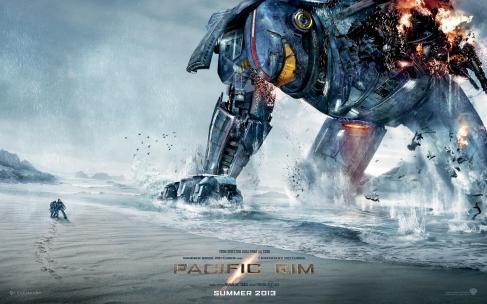If Edge of Tomorrow was just a big, dumb, popcorn movie about mankind’s last desperate battle against alien invaders, with only Tom Cruise and Emily Blunt to save us, I’d probably have enjoyed it more. But it also throws in a potentially intriguing time-loop in which every time he is killed Cruise repeats the same day, again and again and again, until he gets it right.
If you think this sounds like a sci-fi take on Groundhog Day, you’d be right. If you pointed out that, er, Source Code already delivered a sci-fi version of Groundhog Day, you’d be right again. So you’d expect Edge of Tomorrow to delve deeper into the psychological and philosophical ramifications of this premise – eg what does it do to you to die in agony day after day? If you die and are “reset”, are you the same person or a new one? And what happens to the other “yous” who died and where does their consciousness go? But no. Instead it turns it into a pure video game.
The movie is basically a series of “levels” in which Cruise tries and dies, tries and dies, each time progressing a little bit further as he learns from his mistakes. I Googled this, and discovered that director Doug Liman has indeed done this on purpose: “I’ve tried to bring the best aspects of video games, the most immersive aspects of video games, into my movies,” the director of The Bourne Ultimatum, Mr. and Mrs. Smith and Jumper explained to games site IGN.com.
There’s a problem with this: if you’ve ever waited for your turn while someone else plays a video game, you’ll realise they do not always make great spectator sports. And where’s the jeopardy if our action hero is indestructible? Nevertheless, it’s intriguing that as video games get more filmic, films are getting more videogamey.
The creators of Lost admitted that they constructed the series like a giant video game – eg you find a hatch; you finally work out how to open the hatch; and that takes you to a whole new subterranean level. My favourite example of the genre is Gareth Evans’ brilliant action movie The Raid, which involved the hero climbing up through various (literal) levels of an apartment building, defeating a host of baddies on his way to the climactic confrontation with The Boss.
Tom Cruise is excellent in Edge of Tomorrow, reminding us why he’s such a plausible and likeable action hero after the snoozefest that was Oblivion. Emily Blunt, who’s become one of my favourite actresses, makes the most of a one-note role. The dialogue is sparky, thanks to the writing combo of Jez “Jerusalem” Butterworth and Christopher “The Usual Suspects” McQuarrie. And the action scenes are brilliantly edited, even if the Normandy beach invasion scenes (yes, this is Groundhog D-Day) suffer in comparison with Saving Private Ryan.
But the ending – and I won’t give any spoilers here – is particularly dumb. Not only is it too easy, there is a time problem which I can’t discuss (because spoilers) but which is so glaring I thought I must have missed something till I Googled “stupid ending problem” and found a thread of puzzled fans scratching their heads over the exact same thing.
So if you like killer aliens and Tom Cruise kicking ass in an exo-skeleton – and I do, I do – you will surely enjoy this. But if you hope to exercise the little grey cells over a time-twisty sci-fi pic – and I do, I do – you will be sadly disappointed.



